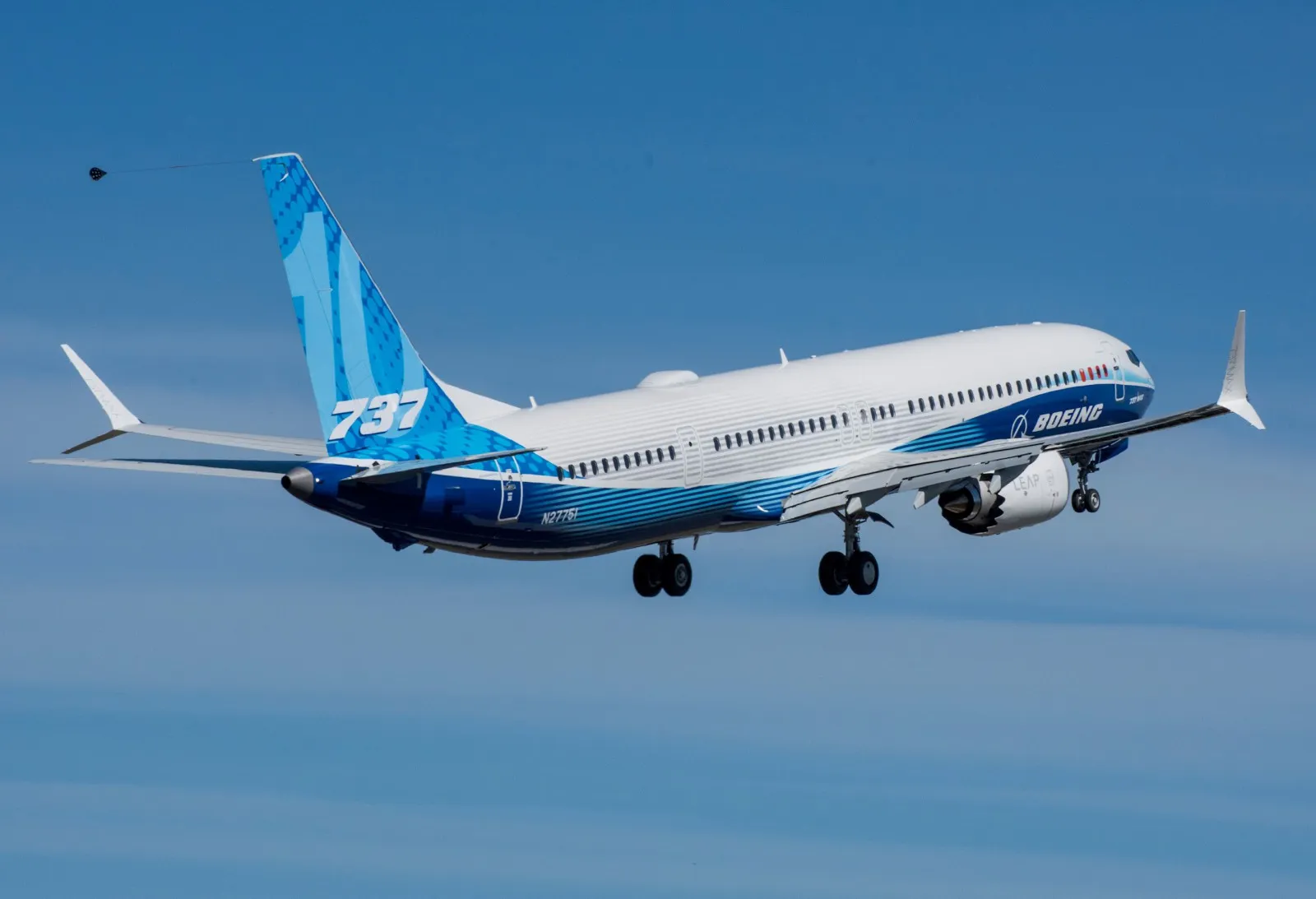
BOEING MAY BE FORCED TO CANCEL THE 737 MAX 10
Jul 07, 2022

Boeing faces potential challenges that could lead to the cancellation of the 737 MAX 10, its latest model in the troubled MAX series. Regulatory hurdles and stringent safety requirements have raised concerns about the aircraft’s certification process. Additionally, delays in development and production could impact Boeing's ability to meet market demands and delivery timelines. As airlines seek efficient and reliable aircraft, any setbacks in the MAX 10 program could compel Boeing to reconsider its future. The situation underscores the ongoing scrutiny the company faces following past safety incidents, emphasizing the need for rigorous compliance and innovation in aviation.
The future of the "Boeing 737 MAX 10" is hanging in the balance as the company faces increasing pressure from regulatory bodies and market conditions. The aircraft, which is the latest in Boeing's line of MAX jets, has been touted for its fuel efficiency and passenger capacity. However, recent developments suggest that Boeing may be forced to cancel its production plans for the 737 MAX 10 if it cannot meet stringent safety and regulatory requirements.
Reasons Behind Potential Cancellation
Several factors contribute to the possibility of Boeing canceling the "737 MAX 10". The following points outline the main reasons:
| Factor | Description |
|---|---|
| Regulatory Challenges | The 737 MAX 10 must pass rigorous FAA safety tests, which have become more stringent following the earlier 737 MAX crises. |
| Market Demand | With changing market dynamics, airlines are increasingly looking for smaller, more efficient aircraft. |
| Production Delays | Supply chain issues and manufacturing delays could hinder the timely delivery of the 737 MAX 10. |
| Financial Viability | The financial implications of continuing with the project may lead Boeing to reconsider its commitment to the MAX 10. |
Regulatory Challenges
After the "737 MAX" disasters, Boeing has faced intense scrutiny from the FAA and international regulatory bodies. The FAA has mandated a series of tests and evaluations to ensure that every aspect of the "737 MAX 10" meets safety standards. Failure to comply could lead to extended delays or, in the worst-case scenario, cancellation of the project. Boeing must navigate these regulatory waters carefully to avoid repeating past mistakes that have tarnished its reputation.
Market Demand Shifts
Airlines are currently evaluating their fleets in light of the ongoing changes in consumer travel behavior. There is a growing trend toward more fuel-efficient, smaller aircraft that can better serve regional routes. The "737 MAX 10", while larger and capable of carrying more passengers, may not align with the evolving needs of airlines. If demand shifts away from larger jets, Boeing might reconsider the economic viability of the MAX 10, leading to potential cancellation.
Production Delays and Supply Chain Issues
Boeing has already experienced significant delays with its aircraft production due to supply chain disruptions caused by the global pandemic. These delays have raised concerns about the "737 MAX 10"'s timeline. If Boeing cannot meet its production targets, it may be forced to make difficult decisions regarding the project's future. A lack of timely deliveries could alienate potential customers and lead to cancellations of orders, further jeopardizing the program.
Financial Viability of the Project
The financial landscape for airlines and manufacturers has dramatically changed in recent years. With the pandemic's long-lasting effects, airlines are more cautious about their investments. Boeing must assess whether the "737 MAX 10" will generate enough profit to justify the resources and capital invested in its development. If projections indicate that the aircraft won't be financially viable, Boeing could opt to cancel the project altogether, redirecting its focus to more promising models.
Industry Reactions
The potential cancellation of the "737 MAX 10" has elicited a variety of responses from industry experts and stakeholders. Some analysts argue that scrapping the project could be a prudent decision, allowing Boeing to focus on rebuilding its reputation and investing in newer, more innovative technologies. Others believe that the cancellation would represent a significant blow to Boeing's market position, especially against competitors like Airbus, which continues to develop and deliver new aircraft models.
Conclusion: What Lies Ahead for Boeing?
As the situation unfolds, the future of the "Boeing 737 MAX 10" remains uncertain. Regulatory challenges, shifting market demands, production delays, and financial viability are all factors that Boeing must navigate carefully. The company's ability to adapt to these challenges will determine whether the "737 MAX 10" sees the light of day or becomes a chapter in Boeing's complex history. For both investors and aviation enthusiasts, keeping a close eye on Boeing's next moves will be crucial as the aviation industry continues to evolve.
Related Articles

Explore Thailand: The Best Islands to Visit for Paradise, Adventure, and Relaxation

The Ultimate Guide to the Best Islands in Thailand for Your Next Getaway

Do babies need passports? How to get a passport for a newborn

How to get a U.S. passport fast: here’s how to expedite the process

What is Mobile Passport Control: 5 reasons why you should use it

SENTRI vs. Global Entry: A detailed guide

Do you need a passport to go to the Bahamas? Let’s find out

Do you need a passport to go to Mexico? A detailed guide

Do you need a passport to go to Canada? We got the answer

Do You Need a Passport for a Cruise: An Essential Travel Guide

Booster Seat Requirements: All the Rules to Follow in Your Rental Car

What Are the World’s Most Powerful Passports, and How Does Yours Rank?

How to Take a Passport Photo at Home: A Helpful Guide

You've got to have heart! Southwest's new livery

Your opinion: Should water be free on low cost carriers?

Young women bolder than guys as solo travellers
